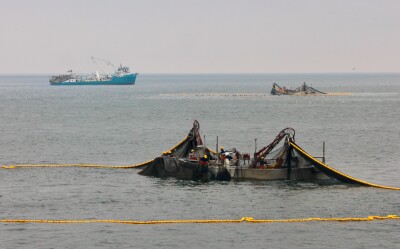In "Dirty Harry," Clint Eastwood memorably asked, do you "feel lucky?" It made for great theater, but it's no way to manage North Coast salmon. Unfortunately, that's been the policy of the U.S. Department of Interior toward the near-record run of chinook salmon that is migrating up the Trinity and Klamath rivers. Instead of a comprehensive strategy to fulfill its duty to protect this iconic fishery, the department is rolling the dice. So far, the salmon have been lucky.
A decade ago, they were not so lucky. In 2002, the same conditions we are experiencing this year - large salmon returns, a dry year, and over-allocated Klamath River water unable to satisfy all competing needs - produced a massive fish kill. Insufficient river flows brought death to thousands of salmon and economic disaster for tribes, fishermen, and communities up and down the West Coast.
The water allocation conflicts in the Klamath River Basin are exacerbated by the constant legal battles waged by corporate farms in the Central Valley against the interests of those who rely on salmon on the North Coast of California. This summer, the ever-litigious Westlands Water District in Fresno sued to stop the federal government from releasing water from Trinity Lake into the Trinity River to improve conditions for salmon downstream in the Lower Klamath. Despite the need to raise water levels and cool the river to help avoid a fish kill, Westlands wanted the water, so it sued and won a temporary order blocking the Trinity releases.
Luckily, the federal court ultimately ruled against Westlands and allowed the water to be released - just in time to reach thousands of salmon entering the Klamath estuary. But this shouldn't have happened - it shouldn't be up to a judge to decide every year whether the federal government can use Trinity River water to prevent a fish kill. For the sake of salmon and the sake of plain good governance, we need a permanent solution.
Read the full story at San Francisco Chronicle>>






